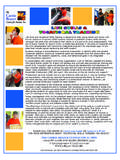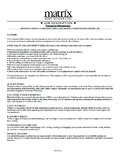Transcription of Standard 7 Person centred support - cis-assessment
1 Standard 7 Person centred support Your Name: Workplace: Start Date: Completion Date: Contents 1. Promote Person - centred values in everyday work 2. Working in a Person - centred way 3. Recognising possible signs of dementia 4. Supporting active participation 5. Supporting an individual s rights to make choices 6. Promoting spiritual and emotional well-being 7. Questions CIS Assessment Induction Workbook Seven Page 2 of 37 Standard 7 Person centred support 1. Promote Person centred values in everyday work Understand how to put Person - centred values into practice in your day to day work Person - centred is about providing care and support that is centred or focused on the individual and their needs. We are all individual and just because two people might have the same medical condition, for example, Dementia, it doesn t mean that they require the same care and support .
2 You will need to develop a clear understanding about the individuals you are working with. This includes their needs, their culture, their means of communication, their likes and dislikes, their family and other professionals involvement so you can promote and provide Person centred care and support . Person - centred values provide a foundation on which you can base and build your practice. You need to understand what the values are, how you can promote them and why they are important. A value is simply what is important in the life of the Person you are supporting. There are eight Person centred values that support Person - centred care and support . These are:- Individuality: Assumptions should never be made about an individual. They should never have to fit in with you or your employer.
3 Individuals should be allowed and supported to make their own choices. Care and support needs should be tailored to suit each individual. This shows respect by preserving the individual s dignity and individuality. Their personal beliefs should be respected. Independence: Allow the individuals you support to do things for themselves, however small. Being independent does not necessarily mean being completely alone, but being supported to do things for themselves. Take time to enable the individuals you support to be independent. Don t do things for them because it is quicker. support them to do things that they can do or almost do. Independence makes people feel in control of their lives and gives them a sense of self-worth.
4 Privacy: You will need to understand each individual s need for privacy and support this in the way you work. The availability of private space will be different in residential care home and home care environments. CIS Assessment Induction Workbook Seven Page 3 of 37 Irrespective of which environment, you should always ask permission before entering an individual s room. Always knock on their door. All visitors must ask permission before entering rooms irrespective of who they are. Close doors when performing personal hygiene but first check the individual is happy with you doing so. Every individual should have time and spaces to do things in private if they should wish to, for example, meeting friends and family or making phone calls.
5 Partnership: Working in partnership with other professionals, with colleagues, families and carers is an essential part of providing care and support . Person - centred care and support is about a whole range of people working together to improve the lives of individuals. Partnership is all about the individual you are supporting and all of the partners involved will need good communication, sharing appropriate information putting the individual s best interests at the centre of everything that everyone does. Choice: Each individual you are supporting should be allowed and supported to make choices. They should be given thorough information in order to make informed choices themselves and you must acknowledge the benefits of their choices.
6 Never take over because you can do things faster or because you think something should be done a particular way. Always involve the individual in decisions about their care and support . Sometimes individuals can be overwhelmed with choice, for example, individuals suffering from Dementia, may respond better if you give them two simple choices but this is much better than giving no choice at all. You will need to be able to communicate and listen well. Dignity: Dignity is what we feel when we are respected and it is what makes us feel important in society and in our lives. Whether individuals are eating, sleeping, washing, shopping or dying, care and support workers must help them to feel dignified.
7 Be aware of the importance of preserving an individual s dignity, ask them how they wish to be addressed; try not to rush them and take time to listen; use towels or clothing to cover them up when performing intimate care tasks. It is important not to stereotype or make guesses about individuals and their needs. Respect: Is showing an individual you will support them in what they believe is important, whatever their age, culture, disability, gender, belief or sexual orientation. When working with other people or professionals, never ignore the individuals you are supporting. Always include them in the conversation, irrespective of the subject? Never use a term of endearment, for example, calling an individual love or dear , without asking them what name they would like to be called.
8 Some people dislike terms of endearment, others will approve as it is part of their everyday language. Either way, we can never assume it is acceptable and it is essential to always check when you first meet. CIS Assessment Induction Workbook Seven Page 4 of 37 Rights: Individuals you care for and support should continue to have the same rights as when they were living independently. Each individual you support has the right to say no, the right to have a relationship, the right to have a say about how they are supported. They have a right to choose what they eat and when, how they dress and when. They have the right to choose their friends and what they want to do with their time. You may have to make changes to take an individual s rights into account.
9 You may have to balance an individual s rights against your responsibilities and consider if either they or you are at risk? If you are concerned or unsure, check with your supervisor or manager. Understand why it is important to work in a way that promotes these values when providing support to individuals Think about yourself. Who are you? Who do you choose to be? What do you like and dislike? Do you like to choose what you wear every day? Why do you wear the shoes you wear? How are you different to your family, friends and neighbours? Do you have different ethnicity or religious beliefs? Do you like to eat and drink different things and when it suits you because you are hungry or thirsty? If you ask your family, friends and neighbours, you would get lots of different answers and this will demonstrate how different we all are, even if there are some similarities.
10 This is what gives you your identity and makes you special, unique and different. You have the freedom to make choices every day about how you live your life. Sometimes your choices are restricted because of your financial situation or because you have to work at certain times or work in partnership with your family to make a contribution towards the support of a family unit. Your role as a care and support worker is to provide this supporting role to individuals and enable them to live their lives the way they want to. The individuals you support may have different circumstances to you but they still have the same rights as you and your friends and family do, to make the same choices, and do the same things.











